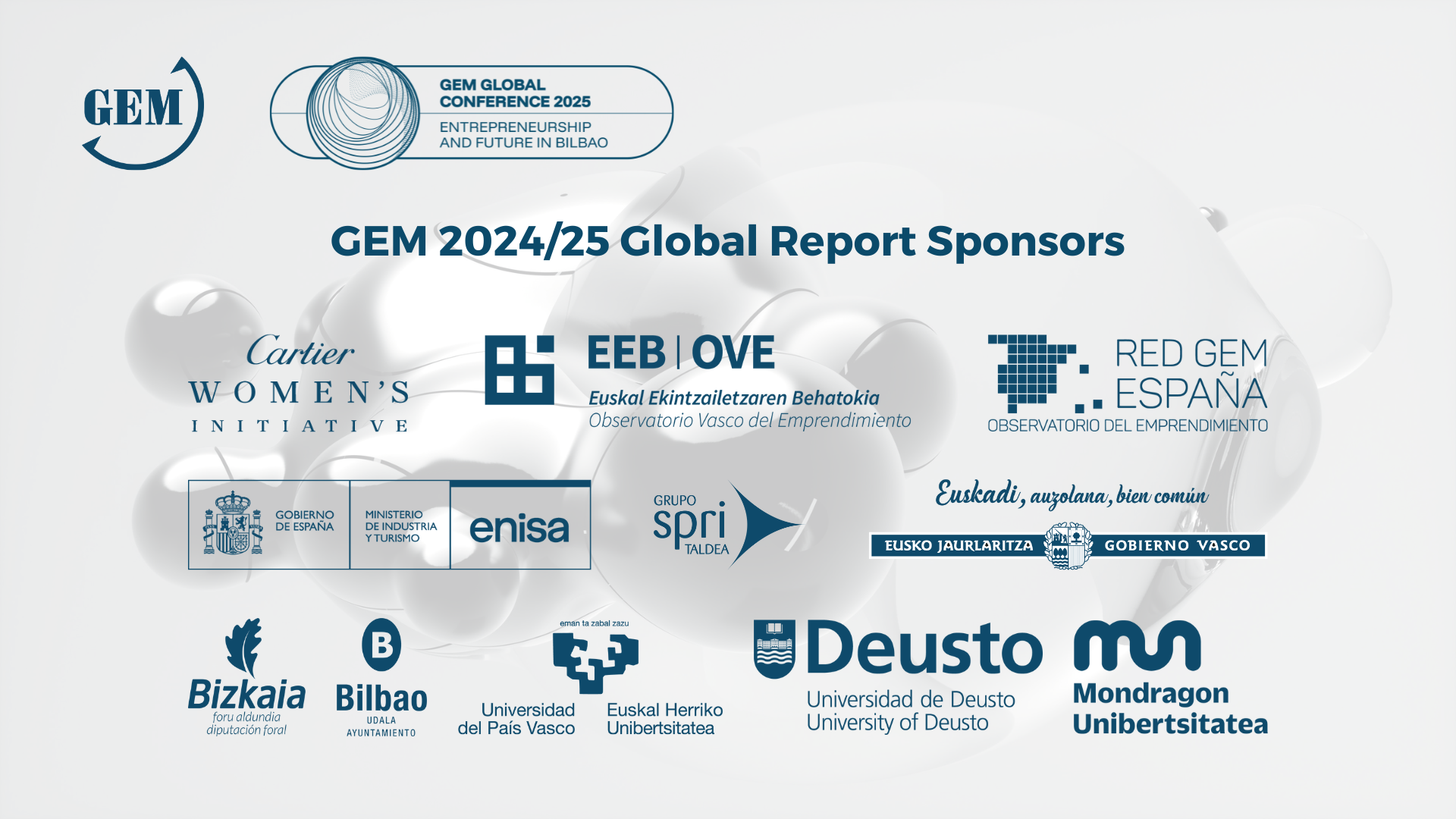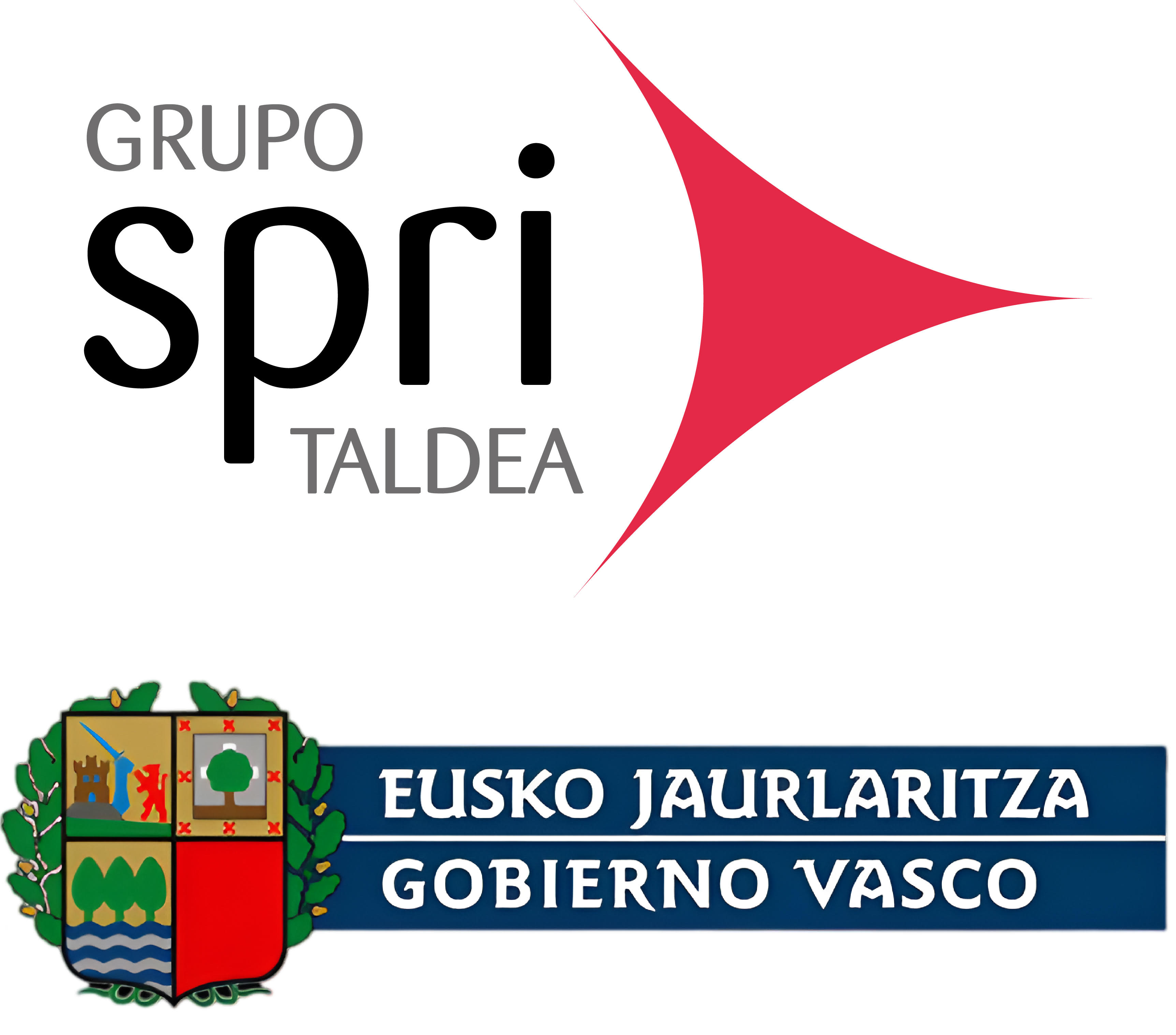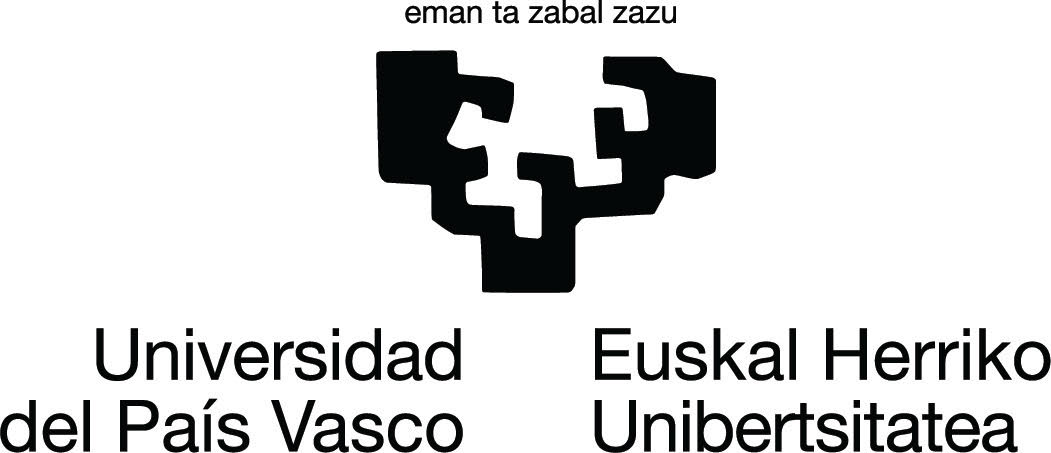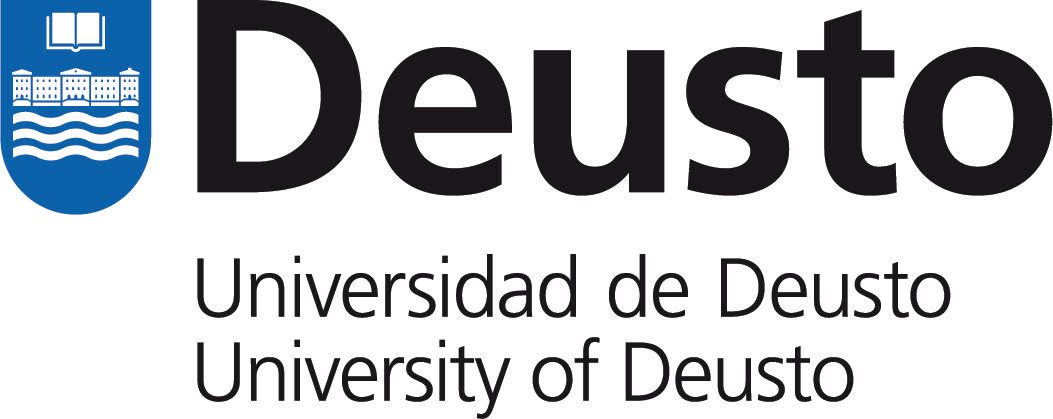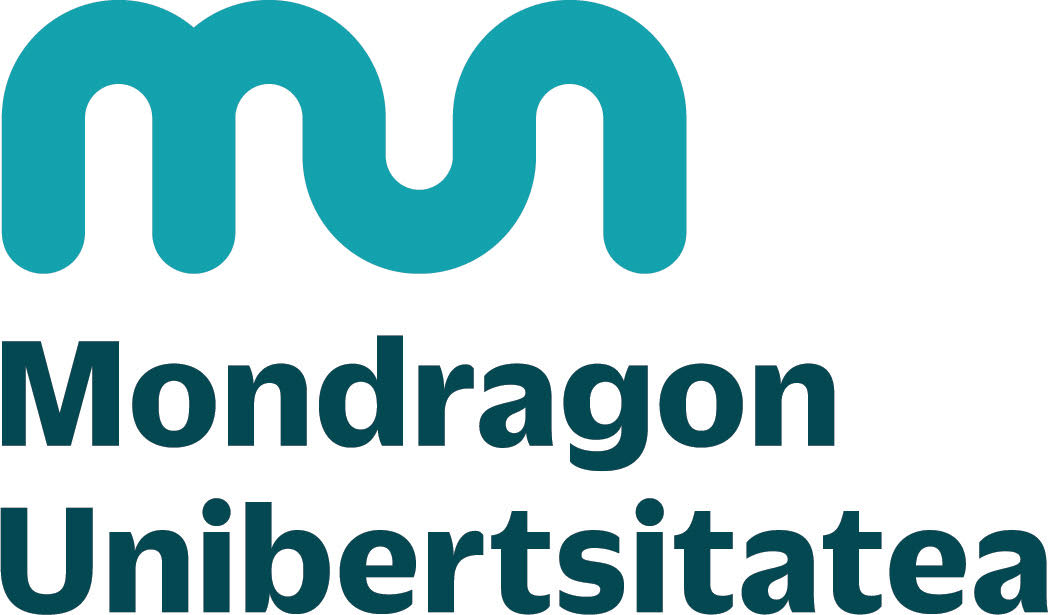GEM Global Report Launches and Annual Meetings are made possible through the generous support of high-profile sponsors. This year's event takes place from 17 - 19 February at the University of Deusto and the University of the Basque Country, hosted by GEM Spain and GEM Basque Country. Below is an overview of our valued sponsors.
The Cartier Women’s Initiative is an annual international entrepreneurship programme that aims to drive change by empowering women impact entrepreneurs. Founded in 2006, the programme is open to women-run and women-owned businesses from any country and sector that aim to have a strong and sustainable social and/or environmental impact.At the heart of the Cartier Women’s Initiative is a vision of a world in which every woman impact entrepreneur can realise her full potential. Cartier Women’s Initiative has partnered with GEM to generate evidence on the global state of women’s entrepreneurship. This is critical for driving collaboration and enrolling more support for women entrepreneurs.
MINISTRY OF INDUSTRY AND TOURISM - EINISA, SPAIN

ENISA is a State-owned company that belongs to the Ministry of Industry and Tourism, whose mission is to help viable and innovative projects, driven by entrepreneurs or small and medium sized Spanish companies, to find the necessary financing to develop and compete in a global market. This financial boost takes the form of participative loans of between €25,000 and €1,5 million. It is a financing alternative that is particularly suited to the needs of SMEs and requires no collateral or guarantee other than a solid business project and the professional solvency of its management team. Since 2022 ENISA has taken on the role of certifying entity for startups wishing to take advantage of the fiscal and social benefits of the so called Startups Law, a pioneering legislation in Europe that creates a favourable legal environment for the growth and success of startups.
SPRI GROUP - BASQUE GOVERNMENT
The Basque Agency for Business Development (SPRI Group) is part of the Basque Government’s Department of Industry, Energy Transition and Sustainability, established to promote Basque industry. The SPRI Group is dedicated to supporting, promoting and contributing to the competitive improvement of Basque companies; it works both with existing cybersecurity or digitalisation firms and with those in the process of being created. Through its initiatives, it contributes to the generation of wealth in the region and to the improvement of the welfare of citizens by means of sustainable human development, within the scope of the Basque Government’s Economic Promotion Policy.
GOVERNMENT OF BIZKAIA

The Government of Bizkaia is the collegiate body responsible for the government and administration of the territory of Bizkaia. Through its Department of Economic Promotion it seeks to strengthen Bizkaia’s position as an innovative, talented, attractive, connected and balanced territory. To this end, it has a wide range of policies that promote the creation of an ecosystem of support for advanced entrepreneurship — one of the strategic levers for the economic development of Bizkaia’s business fabric. It also promotes the innovation and internationalisation of Bizkaia’s SMEs and their adaptation to a digital economy; as well as the attraction and retention of talent and support for competitiveness at a regional level to achieve a balanced development among Bizkaia’s regions and for all its economic initiatives.
BILBAO CITY COUNCIL
Bilbao City Council, through the Department of Economic Development, Trade and Employment, created Bilbao Ekintza, a municipal company to support and contribute to the economic development of the city and facilitate companies’ creation and growth. It also seeks to support the access of companies to new markets. It promotes the development of commercial activity while still maintaining a commitment to being the driving force behind projects and initiatives from abroad. It also promotes the professional development of young people, valuing their talent and creativity. Finally, it attracts events and tourists to the city to generate wealth and employment.
UNIVERSITY OF THE BASQUE COUNTRY- UPV/EHU
The University of the Basque Country/Euskal Herriko Unibertsitatea (UPV/EHU), founded in 1980, is a key player in the development of the Basque community. With a presence in the three main cities of the territory — Bilbao, Donostia-San Sebastián and Vitoria-Gasteiz — it has 20 faculties and schools in all, offering over 100 undergraduate degrees across a full spectrum of subjects, over 100 master’s degrees, and 66 doctoral programmes. UPV/EHU is a public university, a research university, and a pioneer in the field of dual training, with over 5,000 agreements in place and an annual offering of over 11,000 internships. It is ranked among the 400 best universities in the world (Shanghai ranking) and among the 200 best of those founded within the last 50 years (Times Higher Education).
UNIVERSITY OF DEUSTO
The University of Deusto was founded in 1886 by the Society of Jesus, and is the oldest private university in Spain, with campuses in Bilbao and San Sebastian, and headquarters in Vitoria and Madrid. Through its educational model, it seeks excellence in research and teaching across its seven faculties. Positioned among the highest-ranked universities in a range of European and world university rankings, it provides a flexible research ecosystem that fosters international and intersectoral collaboration, as well as guaranteeing agility and response to the demands of society and organisations. The University of Deusto has over 5,000 agreements in place with over 1,400 companies.
Mondragon University is a cooperative university and public utility, created in 1997 and integrated within the Mondragon Corporation. It was formed with the integration of three educational cooperatives — Mondragon Goi Eskola Politeknikoa “Jose Mª Arizmendiarrieta” S. Coop, ETEO S. Coop and Irakasle Eskola S. Coop — which, respectively, now comprise the University’s two Faculties and its School, and which were joined in 2011 by the Faculty of Gastronomic Sciences — or the Basque Culinary Center. Mondragon University embodies a training model that seeks the involvement of companies and institutions to guarantee social accessibility, combining study and work, the development of research and the transfer of knowledge, and the provision of continuing education.

